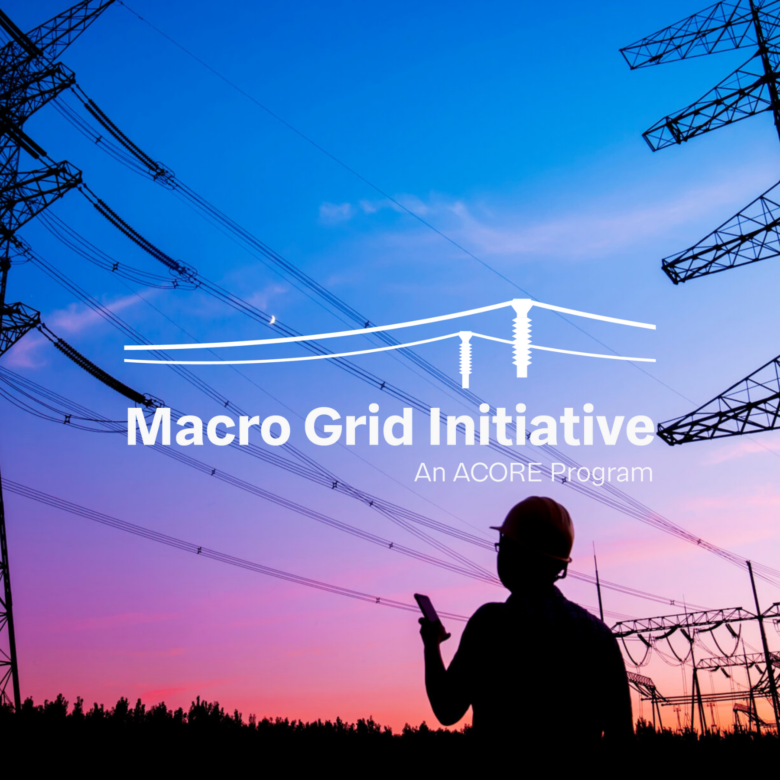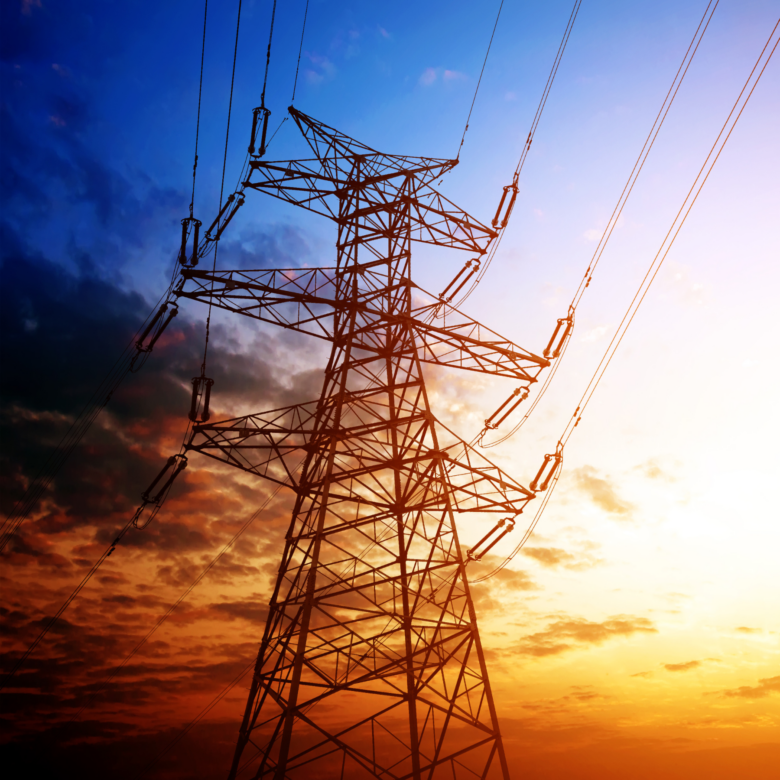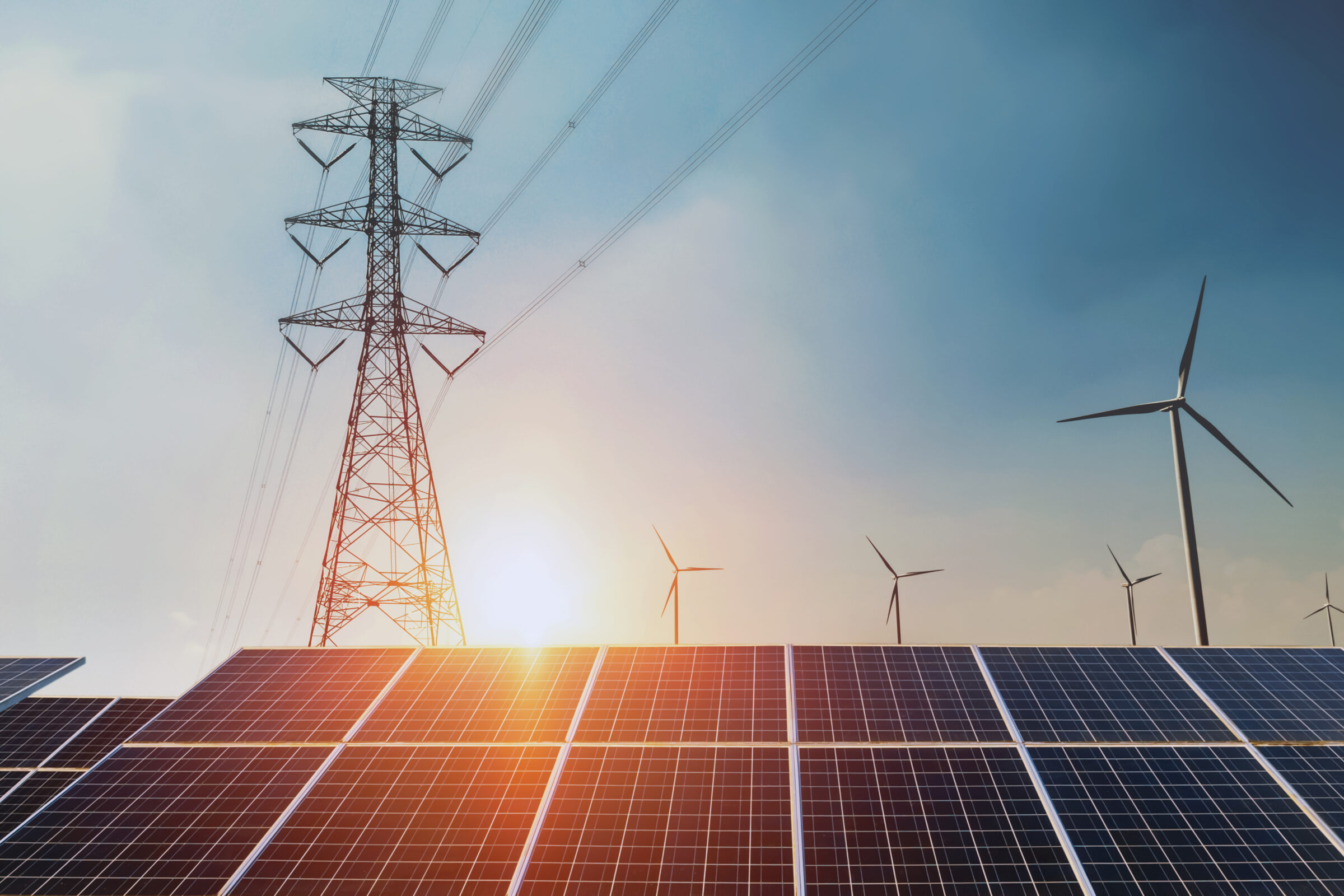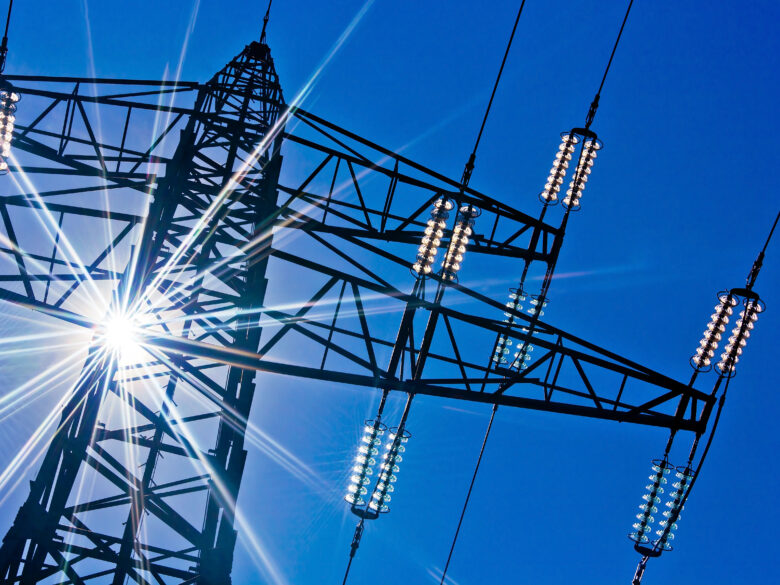Macro Grid Initiative
Expanding and upgrading the U.S. power grid to enable economic growth and save American consumers money.

About
Antiquated transmission infrastructure and a balkanized electricity grid are limiting America’s ability to meet changing demands on the electric system.
Investment in more interregional transmission — either through a Macro Grid overlay or simply better connections between grid regions — would save consumers billions of dollars, enhance grid reliability and resiliency during extreme weather, deliver significant job creation, and support economic growth.
The Macro Grid Initiative is an educational program focused on bolstering the nation’s transmission capacity by building new high-voltage regional and interregional power lines, deploying advanced transmission technologies, and developing an offshore grid.
Learn more about transmission opportunities, challenges, needs, and solutions.
Key BenefitsA Macro Grid would provide economic benefits for America.
-
35 An additional 35 GW of transfer capability across the U.S. is needed to help ensure reliable electricity during extreme weather events.
-
3 M 36 shovel-ready transmission projects can create 3.3 million jobs.
-
$ 20 B Grid congestion cost Americans an estimated $20.8 billion in 2022.
-
114 % Interregional transmission must increase 114% to meet moderate load and high clean energy growth by 2035.
Latest Reports
Transmission Resources
ACORE’s Macro Grid Initiative, coalition partners, ally groups, and academic and government institutions have developed groundbreaking resources highlighting the benefits of expanding and upgrading the nation’s transmission grid, as well as the regulatory challenges that are blocking progress to those upgrades. These resources, organized by topic, are listed below.
ACORE Fact Sheets
Upgrading and Expanding the U.S. Transmission Grid
Energy Assurance Depends on a Resilient Transmission Grid
Upgrading And Expanding High-Voltage Transmission Creates Jobs
The Benefits of High-Voltage Transmission In A Global Economy
Advanced Transmission Technologies
Fact Sheets:
About Advanced Transmission Technologies – WATT Coalition and AMP Coalition (August 2024)
Benefits of Advanced Transmission Technologies – WATT Coalition and AMP Coalition (August 2024)
Federal Funding for ATTs – WATT Coalition and AMP Coalition (August 2024)
State Regulator Priorities for ATTs – WATT Coalition and AMP Coalition (August 2024)
State Legislator Priorities for ATTs – WATT Coalition and AMP Coalition (August 2024)
For more information, check out the WATT Coalition and the AMP Coalition.
Reports:
Use of Advanced Transmission Technologies and Innovative Practices in Power Systems: Potential Benefits, Lessons Learned, and Recommendations – WIRES, London Economics (August 2025)
Incorporating GETs and HPCs into Transmission Planning Under FERC Order 1920 – The Brattle Group, ACORE, Grid Strategies (April 2025)
Assessment and Evaluation of Grid Enhancing Technologies (GETs) – Electric Power Engineers, ACORE (February 2025)
Advanced Grid Technologies: Governor Leadership to Spur Innovation and Adoption – National Governors Association (January 2025)
Unlocking Power: A Playbook on Grid Enhancing Technologies for State and Regional Regulators and Policymakers – WATT Coalition, Grid Strategies, ACORE (October 2024)
Unlocking the Grid: A Playbook on High Performance Conductors for State and Regional Regulators and Policymakers – AMP Coalition, Grid Strategies, ACORE (October 2024)
A Roadmap for Advanced Transmission Technology Adoption – MIT Center for Energy and Environmental Policy Research (September 2024)
Pathways to Commercial Liftoff: Innovative Grid Deployment – U.S. DOE (April 2024)
The 2035 Report: Reconductoring With Advanced Conductors Can Accelerate the Rapid Transmission Expansion Required for a Clean Grid – University of California, Berkeley, GridLab (April 2024)
GETting Interconnected in PJM – RMI (February 2024)
Accelerating Transmission Expansion by Using Advanced Conductors in Existing Right-of-Way – University of California, Berkeley (February 2024)
Transmission Congestion Costs Rise Again in U.S. RTOs – Grid Strategies (July 2023)
Building a Better Grid: How Grid-Enhancing Technologies Complement Transmission Buildouts – Brattle, WATT Coalition (April 2023)
Advanced Conductors on Existing Transmission Corridors to Accelerate Low Cost Decarbonization – Grid Strategies, CTC Global, ACORE, et al. (March 2022)
Grid-Enhancing Technologies: A Case Study on Ratepayer Impact – U.S. DOE (February 2022)
Unlocking the Queue with Grid-Enhancing Technologies – Brattle, WATT Coalition (February 2021)
Benefits of a Macro or Nationally Connected Grid
Unlocking HVDC: How Congress Can Enable a More Resilient Grid – Niskanen Center (July 2025)
Transmission Value in 2023: Market Data Shows the Value of Transmission Remained High in Certain Locations Despite Overall Low Wholesale Electricity Prices – Lawrence Berkeley National Laboratory (July 2024)
Interconnections Seam Study – NREL (September 2021)
Transmission Planning for 100% Clean Electricity – ESIG (February 2021)
The Value of Inter-Regional Coordination and Transmission in Decarbonizing the US Electricity System – MIT (January 2021)
Grid Vision: The Electric Highway to a 21st Century Economy – American Wind Energy Association (May 2019)
International Competitiveness
Electricity Transmission is Key to Unlock the Full Potential of the Inflation Reduction Act – Princeton University (September 2022)
Macro Grids in the Mainstream: An International Survey of Plans and Progress – Iowa State University, ACEG, ACORE (November 2020)
Interregional Transmission
Resource Adequacy Value of Interregional Transmission – Grid Strategies, ACEG, Grid United (June 2025)
Power Flows, Part 2: Transmission Lowers US Generation Costs, But Generator Incentives Are Not Aligned – Resources for the Future (April 2025)
High Voltage, High Reward Transmission – RMI (February 2025)
NERC’s Recommended Grid Expansion Would Save Consumers Billions – Grid Strategies, NRDC (February 2025)
Interregional Transfer Capability Study – NERC (November 2024)
Collaborative Enhancements to Unlock Interregional Transmission – NARUC (June 2024)
Interregional Transmission for Resilience: Using Regional Diversity to Prioritize Additional Interregional Transmission – ESIG (June 2024)
Barriers and Opportunities To Realize the System Value of Interregional Transmission – NREL (June 2024)
Billions in Benefits: A Path for Expanding Transmission Between MISO and PJM – Grid Strategies, ACORE (November 2023)
National Transmission Needs Study – U.S. DOE (October 2023)
The Need for Intertie Optimization: Reducing Customer Costs, Improving Grid Resilience, and Encouraging Interregional Transmission – Brattle, Invenergy, Grid United, ACORE, et al. (October 2023)
The Operational and Market Benefits of HVDC to System Operators – Brattle, DNV, Grid United, ACORE, et al. (September 2023)
The Value of Transmission During Winter Storm Elliott – Grid Strategies, ACORE (February 2023)
The Latest Market Data Show that the Potential Savings of New Electric Transmission was Higher Last Year than at Any Point in the Last Decade – LBNL (February 2023)
HVDC Transmission: A National Security and Energy Resilience Imperative – Converge Strategies, Invenergy Transmission (December 2022)
Economic, Reliability, and Resiliency Benefits of Interregional Transmission Capacity – General Electric International, NRDC (October 2022)
Potential Customer Benefits of Interregional Transmission – General Electric International, ACORE (November 2021)
Transmission Makes the Power System Resilient to Extreme Weather – Grid Strategies, ACORE (July 2021)
Consumer, Employment, and Environmental Benefits of Electricity Transmission Expansion in the Eastern U.S. – Vibrant Clean Energy, Grid Strategies, ACEG (October 2020)
Eastern Interconnection Planning Collaborative – U.S. DOE (December 2011)
Offshore Transmission
Gulf of Mexico Offshore Wind Transmission – NREL (July 2024)
Offshore Wind Transmission Development in the U.S. Atlantic Region – U.S. DOE, BOEM (September 2023)
Making Offshore Wind Transmission Work for Communities – Regional Plan Association, Karp Strategies (June 2023)
The Benefit and Urgency of Planned Offshore Transmission: Reducing the Costs of and Barriers to Achieving U.S. Clean Energy Goals – Brattle, NRDC, ACORE, et al. (January 2023)
The Benefit and Cost of Preserving the Option to Create a Meshed Offshore Grid for New York – Brattle, NYSERDA (November 2021)
Offshore Wind Transmission – BNOW, Grid Strategies (October 2020)
Paying for Transmission
Just & Reasonable? Transmission Upgrades Charged to Interconnecting Generators Are Delivering System-Wide Benefits – ICF Resources, ACORE (September 2021)
Investment Tax Credit for Regionally Significant Transmission Lines: A Description and Analysis – Grid Strategies, ACORE (May 2021)
Transmission Projects Ready to Go: Plugging into America’s Untapped Renewable Resources – Grid Strategies, ACEG (April 2021)
Disconnected: The Need for a New Generator Interconnection Policy – Grid Strategies, ACEG (January 2021)
Permitting Transmission
Evidence-Based Recommendations for Overcoming Barriers to Federal Transmission Permitting – Niskanen Center, Clean Air Task Force (April 2024)
NEPA Litigation Over Large Energy and Transport Infrastructure Projects – Stanford University (October 2023)
Planning Transmission
Fewer New Miles: Strategic Industries Held Back by Slow Pace of Transmission – Grid Strategies and ACEG (July 2025)
Optimizing Grid Infrastructure and Proactive Planning to Support Load Growth and Public Policy Goals – Brattle, CATF (July 2025)
Opportunities for Transmission in TVA’s 2025 Integrated Resource Plan – Telos Energy, ACORE, SREA (December 2024)
Fewer New Miles: The US Transmission Grid in the 2020s – ACEG, Grid Strategies (July 2024)
Transmission Planning for PJM’s Future Load and Generation Version 1 – Grid Strategies, David Gardiner and Associates, ACEG (June 2024)
Transmission Expansion for National Defense – Association of Defense Communities, Converge Strategies (April 2024)
Transmission Planning and Development Regional Report Card – Grid Strategies, ACEG (June 2023)
Enabling Low-Cost Clean Energy and Reliable Service Through Better Transmission Benefits Analysis: A Case Study of MISO’s Long Range Transmission Planning – Grid Strategies, ACORE (August 2022)
Multi-Value Transmission Planning for a Clean Energy Future – ESIG (June 2022)
Transmission Planning for the 21st Century: Proven Practices that Increase Value and Reduce Costs – Brattle, Grid Strategies, ACORE, et al. (October 2021)
How Are We Going to Build All That Clean Energy Infrastructure? – Niskanen Center, CATF (August 2021)
How Transmission Planning & Cost Allocation Processes Are Inhibiting Wind & Solar Development in SPP, MISO, & PJM – Concentric Energy Advisors, ACORE, et al. (March 2021)
Planning For The Future: FERC’s Opportunity To Spur More Cost-Effective Transmission Infrastructure – Grid Strategies, ACEG, ACORE (January 2021)
Report On Barriers and Opportunities for High Voltage Transmission – FERC (June 2020)
Vision Statement
Vision Statement
Macro Grid Initiative
“Expanding and upgrading the nation’s transmission network will deliver jobs and economic development, a cleaner environment, and lower costs for consumers.”
Meet the MGI Team
Kevin O’Rourke
Elise Caplan
Colin Meehan
Jonathan Geldof
Alisa Fox
MGI works on federal policy opportunities and at the regional and state levels in collaboration with our partners Advanced Power Alliance, Alliance for Clean Energy New York, Clean Grid Alliance, Interwest Energy Alliance, MAREC Action, RENEW Northeast, Renewable Northwest, and the Southern Renewable Energy Association.
NewsletterSubscribe to the Macro Grid Initiative newsletter.
Join leaders from across the clean energy sector.

What will our next 20 years look like? Here’s the truth: they’ll be better with ACORE at the forefront of energy policy.
Shannon Kellogg
Amazon Web Services (AWS)










